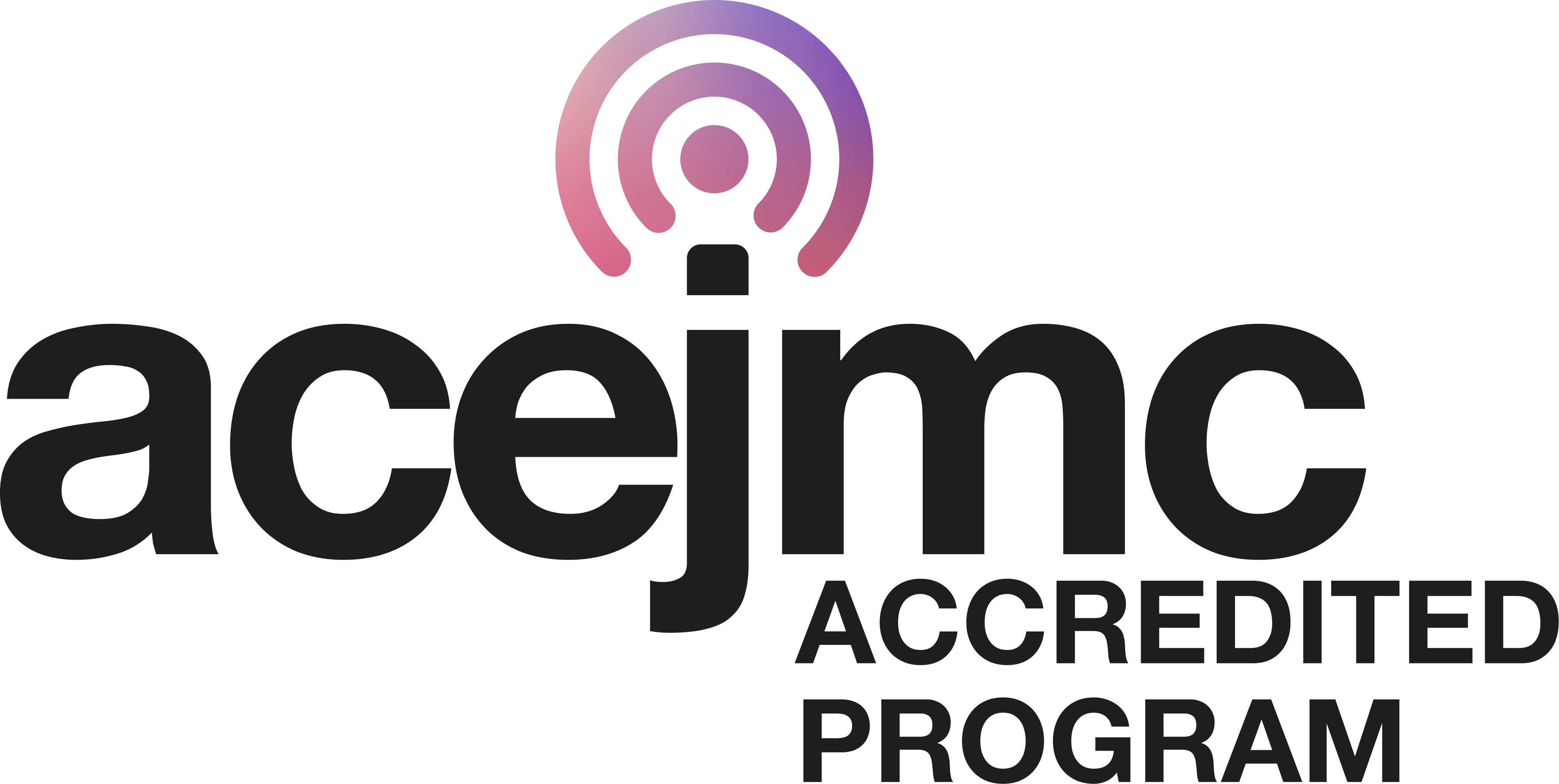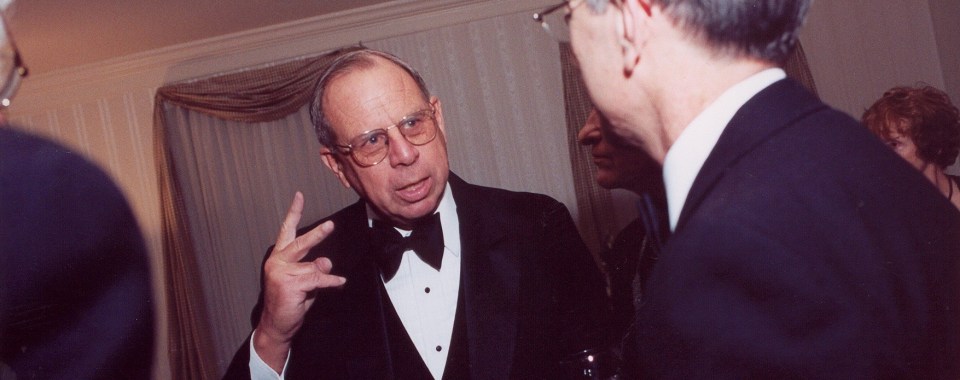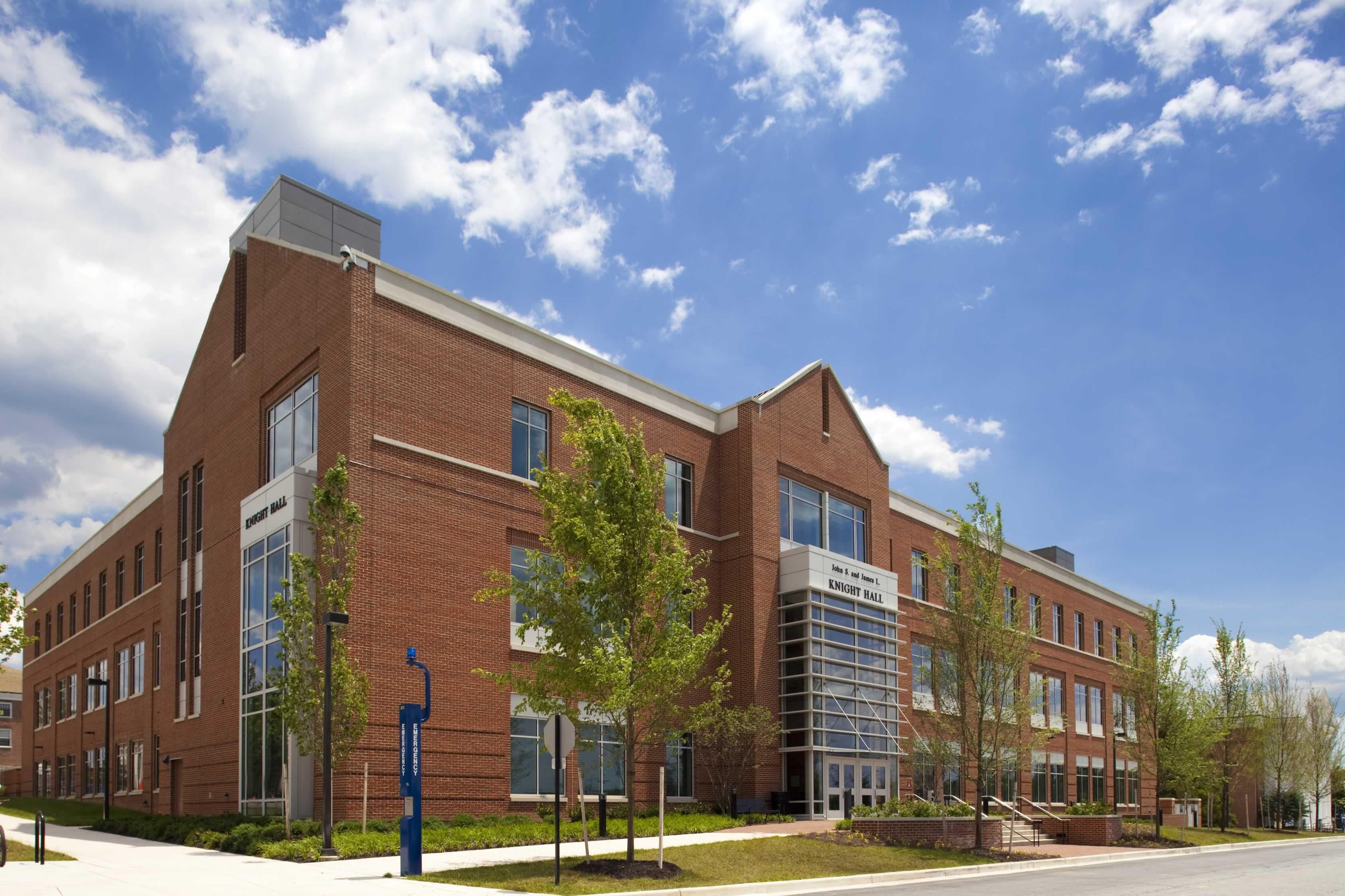About
 The Philip Merrill College of Journalism at the University of Maryland, consistently ranked among the world's top journalism schools, develops journalists and media scholars with rigorous reporting, research and analytical skills, a commitment to ethics, and an appreciation for the First Amendment’s key role in a free society.
The Philip Merrill College of Journalism at the University of Maryland, consistently ranked among the world's top journalism schools, develops journalists and media scholars with rigorous reporting, research and analytical skills, a commitment to ethics, and an appreciation for the First Amendment’s key role in a free society.
Located a few miles from the United States capital, Washington, D.C., the college employs acclaimed researchers and repeat winners of journalism’s top awards — including the Pulitzer, Peabody and Emmy awards — and prepares students to join a dynamic profession.
Merrill College students — who enjoy small classes but also have access to the resources and opportunities available at one of the nation's top public universities — leave Maryland with strong writing and visual skills, a command of technology, and a nuanced understanding of data analysis and audience engagement.
Several online services rank Merrill College among the top journalism schools in the country, including No. 2 by Course Advisor (2023), No. 3 by College Rank (2024), No. 4 by Universities.com (2024), No. 5 by CollegeVine (2024), No. 5 by Transizion (2024), No. 6 by College Factual (2025), No. 6 by CollegeRanker (2024), No. 6 by Successful Student (2024), No. 7 by AP Guru (2021) and No. 8 by College Transitions (2025).
Merrill College is fully accredited by the Accrediting Council on Education in Journalism and Mass Communications.
If you’re ready to join us, Apply Now. Or, Request More Information.
What To Expect
- A focus on fundamentals combined with 21st-century video and digital storytelling skills and an innovative, entrepreneurial spirit that journalists need to succeed in a changing world
- Access to real-world internships in the best regional media market in the world
- An opportunity to work in the hands-on, teaching newsrooms in Annapolis, Washington and Baltimore that we call Capital News Service
- The chance to do important work with the Howard Center for Investigative Journalism, a nationally decorated center that publishes journalism with worldwide impact, or The Shirley Povich Center for Sports Journalism, a national leader in preparing the next generation of sports journalists
- Small class sizes that ensure one-on-one interaction with some of the best in journalism education today
- A full-time and part-time faculty that includes a prestigious mix of journalists and scholars who have won Pulitzers, Emmys and other awards
- An education that will prepare you for success in numerous careers. Many alumni have successful careers in journalism. Others have gone on to law school, started their own businesses or used their communications skills to work for corporations and nonprofits. The skills students learn here are a valued asset in the real world
Vision
The Philip Merrill College of Journalism develops journalists and media scholars with rigorous reporting, research and analytical skills, a commitment to ethics, and an appreciation for the First Amendment’s key role in a free society. Located a few miles from the nation’s capital, the college employs a distinguished and diverse faculty and staff. They prepare students with a variety of personal and professional experiences to make an impact in service of democracy and the journalism profession.
Mission
The Philip Merrill College of Journalism’s faculty of acclaimed researchers and repeat winners of journalism’s top awards — including the Pulitzer, Peabody and Emmy awards — prepares students to join a dynamic profession. Students leave the college with strong writing and visual skills, a command of technology and nuanced understanding of data analysis and audience engagement. The college recruits diversity throughout its ranks, helping prepare students to search for and tell meaningful stories in all communities. The college seeks to benefit the journalism profession and inform the public by supporting and promoting the research of its faculty and the development of future scholars.
Goals
Inform the public and the profession
The college serves the journalism profession, democracy and civil society by informing the public and cultivating trust in journalists. Capital News Service, the college’s student-staffed and faculty-led news organization, sparks conversations among the citizens of Maryland by telling important stories from Washington, Annapolis and elsewhere. The Howard Center for Investigative Journalism works with CNS and professional partners to illuminate complex issues of national and international importance. Public events hosted by the Howard Center and Shirley Povich Center for Sports Journalism, plus media research published by the college’s scholarly faculty, seek to shape the future of journalism and offer the public insight into how journalists do their work.
Develop well-prepared, ethical journalists and researchers who are innovative storytellers and critical thinkers
The college uses its proximity to Washington to recruit some of the nation’s most accomplished journalists as teachers. With top news organizations just a Metro ride away, students enjoy unparalleled access to networking, internships and jobs. In class, students receive an intensive education in public affairs, investigative, sports, video, computational and data journalism. The college encourages students to experiment across platforms and to tell stories in innovative ways. Undergraduate and master’s students are well-grounded in the ethical practice of news-gathering and are prepared to tell community stories that matter. Doctoral students are active researchers, serving the public and the profession by producing rigorous scholarly work that examines news coverage of societal issues, seeks to improve journalism, and helps journalists build trust, credibility and lasting relationships with audiences.
Seek different voices through recruiting and retention
The college recruits students, faculty and staff who reflect the cultural, ethnic, gender and socioeconomic diversity of the country. The college — through its internal and external communications, its course content and public outreach — fosters a welcoming and inclusive environment that encourages people of all backgrounds to join the college and flourish. The college is committed to creating opportunities for outstanding students who need financial assistance. The college seeks to engender greater diversity in the profession, helping newsrooms better reflect the communities they cover.
Lead journalism into the future
The college is shaping the journalism profession by teaching and fostering entrepreneurship and developing novel ways to support and finance quality journalism. It partners with professional news organizations to tackle ambitious reporting projects. It fosters collaboration among journalism faculty and students with a variety of skill sets and enables them to work with people across various academic disciplines at the University of Maryland and beyond. This sets an example that can inspire journalists around the world. The college explores ways to engage more deeply with audiences and fearlessly experiments with storytelling forms. Alumni enter the profession with the education, expertise and experience needed to become leaders who bring about positive change.
The Philip Merrill College of Journalism at the University of Maryland seeks to achieve its mission of academic and journalism excellence by building a rich culture of inclusiveness that focuses on diversity. The College, which is considered a cutting-edge leader in the industry of journalism, is committed to celebrating diversity, inclusion and equity and focusing on producing journalism graduates, educated in the importance of diversity, who are prepared to make a tremendous impact on the issues of diversity and inclusion in the media industry.
The College aims to increase diversity and inclusion on campus through education, recruitment, retention and promotion of students, administrators, faculty, and staff from different backgrounds. We recognize that everyone may not arrive at the college with the same societal privilege due to the country's long history of racism and discrimination. The college seeks to address those imbalances by ensuring that all students, staff, administrators and faculty are presented with the same opportunities for academic and intellectual advancement.
To meet this awesome challenge, the College is re-committed to creating a public sphere for open discourse and dialogue by honoring the traditional journalistic values of seeking the truth while reassessing the impact our college has on regional, national and global communities. Our plan is to implement rigorous and ongoing internal and external assessments, retool our curriculum, and enhance professional service and scholarship opportunities that promote diversity and inclusion.
Definition of Diversity and Inclusivity
The Philip Merrill College of Journalism recognizes that diversity is the presence of “difference,” including race, ethnicity, age, gender, religion, disability, sexual orientation, national origin, and other factors that contribute to individual uniqueness among its students, administrators, faculty, and staff. This includes all attributes of diversity derived from a vast body of knowledge, experiences, ideas and individual persons who collectively come together to form our College.
Inclusivity means recognizing and respecting those differences and understanding that beneath the physical differences, we are all human, with the same desires in the pursuit of intellectual advancement.
Again, by embracing diversity and inclusivity, the College recognizes our leadership role on campus in promoting an inclusive environment for all individuals.
Promoting Diversity Through the Images We Project
The Philip Merrill College of Journalism recognizes our intellectual, social and physical climate makes a critical statement about our commitment to diversity, inclusion and equity. To this end, the College continues to focus on our physical and online spaces to ensure that our building and websites, as well as our staff, reflect the rich diversity of the world. We are committed to making sure visitors to our buildings and websites can see the evidence of our commitment to diversity through images and information promoted by the College.
Aspirations and Assessments
Teaching and Learning
Actively promote diversity and inclusion in the development of course syllabi, access to guest speakers, panels, workshops, facilities, resources and services. The College seeks to invite guest speakers and create programs on campus that support the College’s mission of diversity, inclusion and open discourse in the public sphere. 4/2020
Hiring and Promotion
Actively recruit a diverse student body, staff and faculty by reaching out to journalism organizations such as NABJ, NAHJ, AAJA, NAJA, and NLGJA. We also aspire to develop evaluation criteria to ensure issues of access and equity are considered in the promotion of administrators, faculty and staff.
Student recruitment and advancement
Actively seek out and encourage a diverse population by engaging various resources including community colleges, high schools in diverse communities and advertising and promoting the College through non-traditional University student recruitment avenues. The College will actively engage with diverse journalism organizations, including NABJ, NAHJ, AAJA, NAJA, and NLGJA.
Faculty/Staff recruitment and retention
Actively work to recruit and retain a diverse faculty and staff by promoting an inclusive climate in which all persons are empowered to thrive. The College would seek to appoint an Equity Officer responsible for each search. The Equity Officer would be tasked with ensuring that the College complies with university equity and diversity policies. The Equity Officer would supervise how new positions are advertised, by making sure that the goal of inclusivity and diversity are included in the job descriptions. The Equity Officer would also help ensure that search committees are diverse.
Training
Provide training and mentoring focused on implicit bias, micro aggressions, discrimination, and inclusion. The College would develop policies that address any practices or attempts that jeopardize aspirations of creating a truly diverse, equitable and inclusive environment. Such training would include unconscious bias workshops for all faculty, staff and students seeking to understand unconscious bias, conscious bias and prejudice. The training would seek to educate students, staff and faculty on how to identify and alleviate explicit and implicit bias in encounters that may exist toward social groups based on age, gender identity, physical ability, sexual orientation, religion, weight, voice, politics, dress, economics, skin color and the social construct known as “race.”
Full assessment plan can be found here
Approved for Merrill College in spring 2006; last updated in 2022
The Philip Merrill College of Journalism's mission, as stated in its strategic plan, is to educate students at the undergraduate, master’s and doctoral levels within a liberal arts framework, preparing them for careers in journalism as well as academic research and teaching. The College works to elevate professional and ethical standards of practice and advocates for increased knowledge and involvement in democratic processes through the dissemination of news. At its core, the mission is to improve the production, delivery and access to news and to enhance the understanding of journalism's political, cultural and social roles in the nation and the world. Merrill College does this by stressing the hallmarks of good journalism – accurate reporting, good writing, technical and analytical skills and an understanding of media history, diversity, law and ethics.
The Accrediting Council on Education in Journalism and Mass Communications, the organization that evaluates journalism programs nationwide, and the Middle States Commission on Higher Education, the body that accredits the University of Maryland, both require programs such as ours to directly assess student learning at the course, degree and departmental level. For many years, Merrill College used indirect measures to assess student learning, such as job placement, employer feedback, graduation rates and students’ success in national and regional journalism competitions. In the spring of 2006, the College adopted as its assessment plan a set of learning outcomes for its degree programs in response to the mandates of ACEJMC and Middle States. Implementation of the College's assessment plan began in the fall semester of 2006. The College updated the plan in September 2009 and has periodically updated it since to reflect curriculum revisions to its degree programs.,
The College uses a simple five-point rating system to measure students' mastery of the skills, concepts, theories and processes taught in our classrooms. Although grades are an indication of a student's overall success in a particular course, they do not provide a full measure of a student's mastery and comprehension of those skills and concepts, nor do they allow for comparisons between sections of a course. By rating a student's performance on assignments in key courses and aggregating that information, the College gauges how well students absorb the material covered in the classroom and across the curriculum. The College also continues to use indirect measures to track student learning. This assessment program has resulted in changes in curriculum. The data collected have helped the College improve the consistency of its beginning reporting class across course sections, created a process to identify and assist students with poor math skills and provided students with professional feedback on their work quality and portfolios so that they are competitive when they enter the journalism profession.
Retention and Graduation Data
Who was Philip Merrill?

Philip (Phil) Merrill combined publishing and public service throughout his career. Merrill was the owner and publisher of The Capital newspaper in Annapolis, The Maryland Gazette, Washingtonian magazine and four other area newspapers. He served as an assistant secretary-general of NATO in Brussels, as special assistant to the Deputy Secretary of State and as a member of the Department of Defense Policy Board. He represented the U.S. in negotiations on the Law of the Sea Conference, the International Telecommunications Union and various disarmament and exchange agreements with the Soviet Union. He died in June 2006.
In 2001, Merrill and his wife Eleanor donated $10 million to the University of Maryland for the journalism school and the school was renamed in his honor. The Merrill family has continued to play an active role in the school’s development, with Ellie serving as the longtime chair of the Board of Visitors (now as chair emeritus) and daughter Cathy assuming a seat on the board in 2007.
The gift, which Merrill wanted to have an immediate impact, went to endowing faculty chairs, graduate fellowships, equipment and outreach for the college. Merrill said he wanted his gift to help the college “achieve its goal of being the very best in the nation.”

